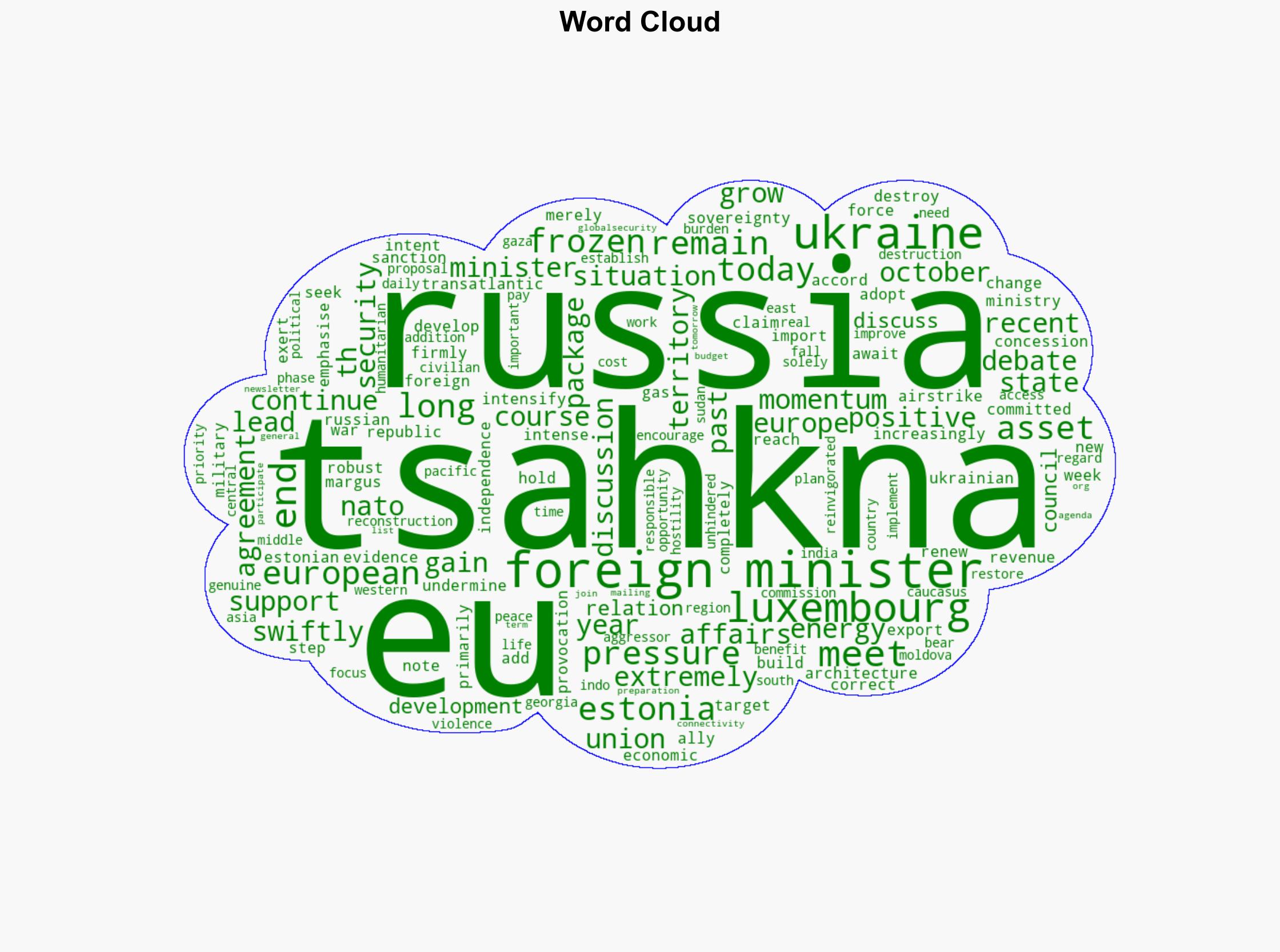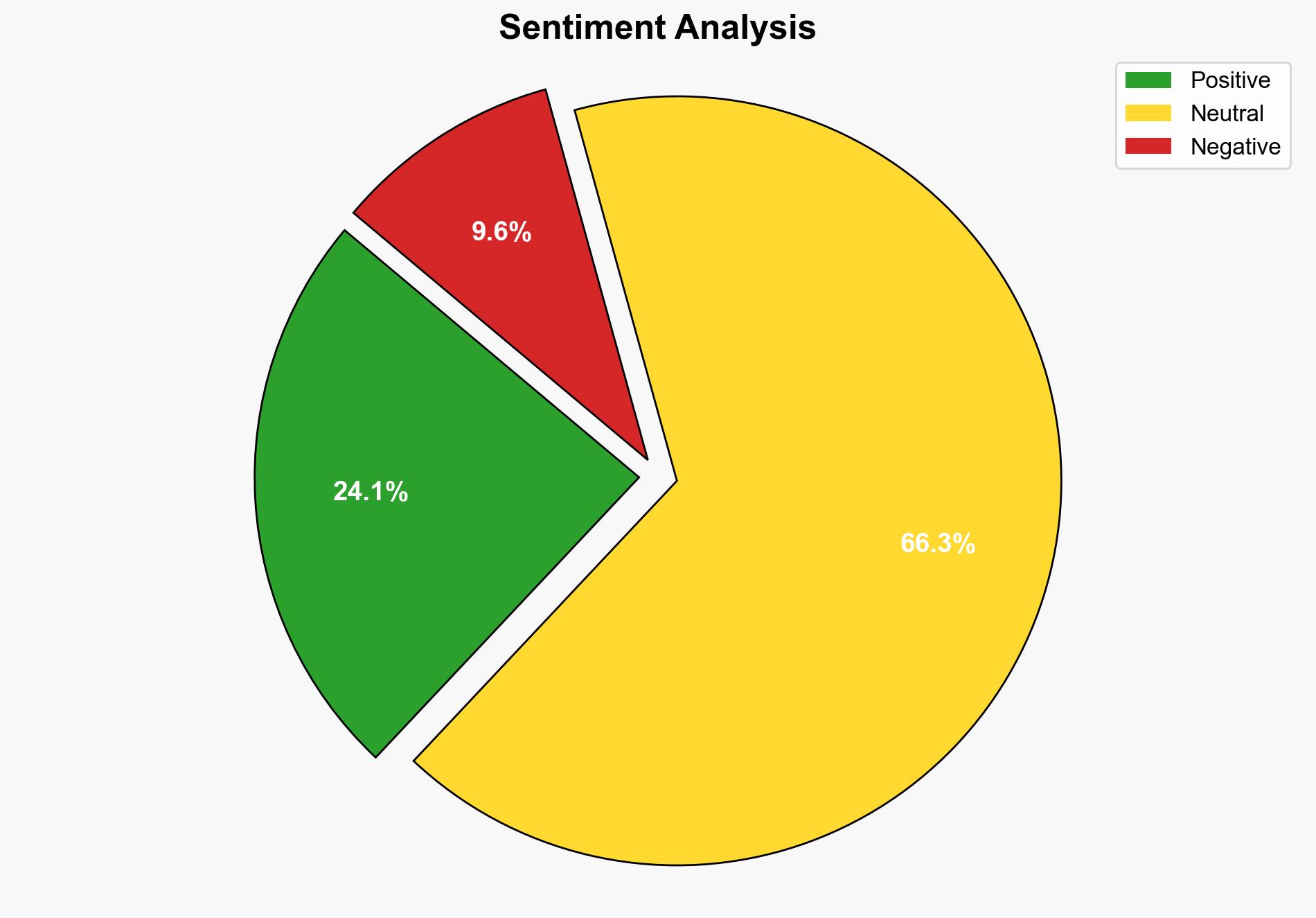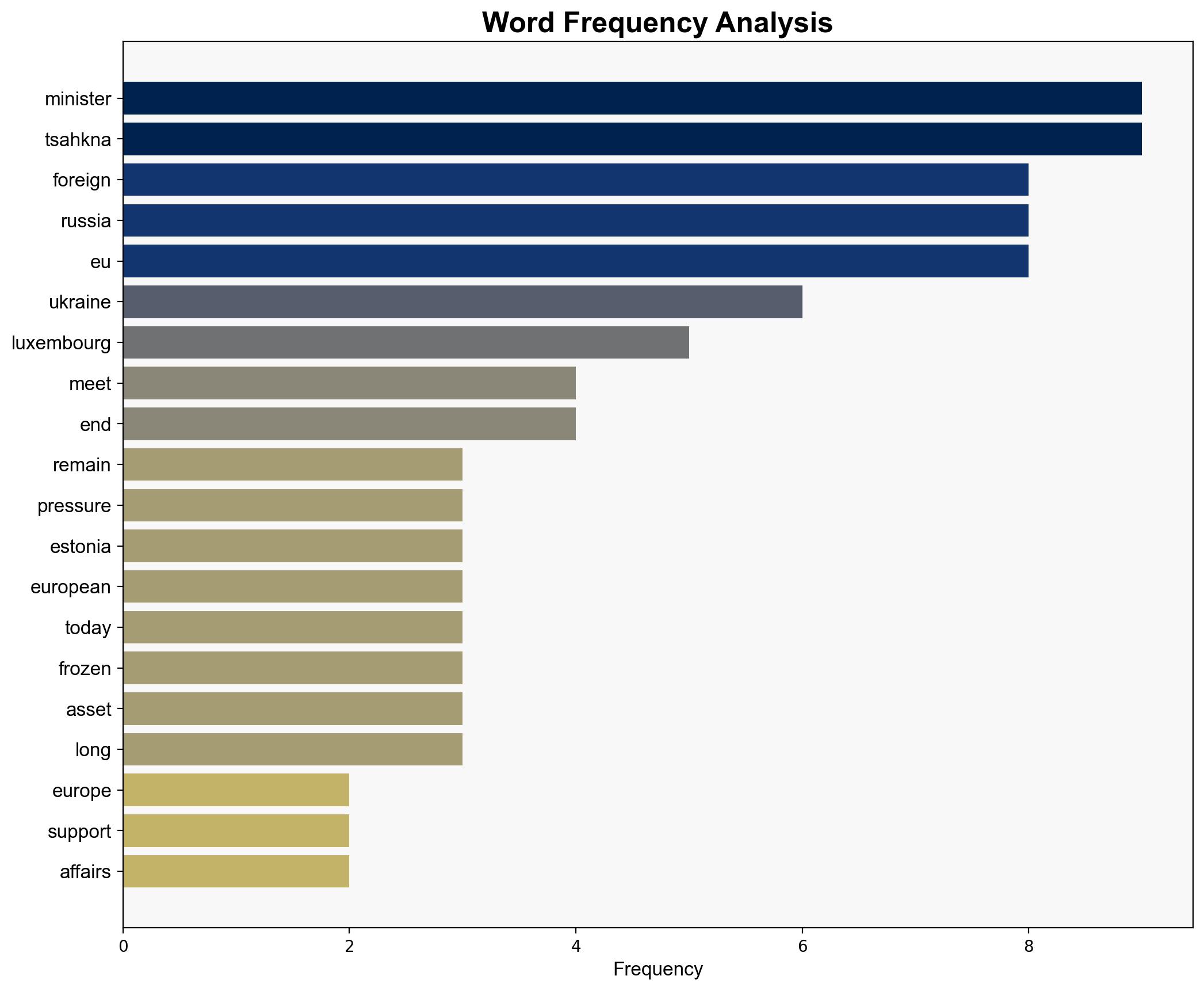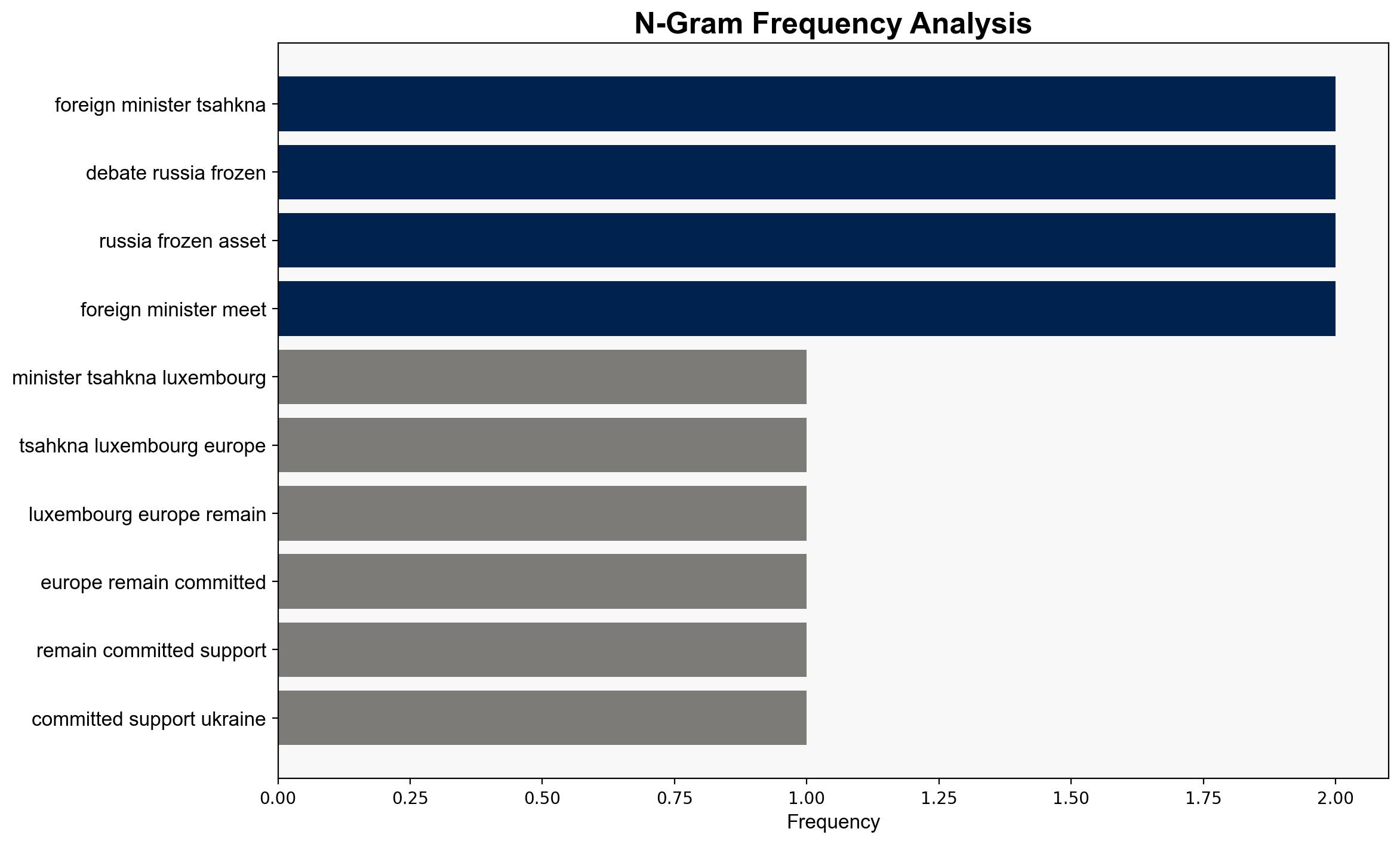Foreign Minister Tsahkna in Luxembourg Europe remains committed to supporting Ukraine and pressuring Russia – Globalsecurity.org
Published on: 2025-10-21
Intelligence Report: Foreign Minister Tsahkna in Luxembourg Europe remains committed to supporting Ukraine and pressuring Russia – Globalsecurity.org
1. BLUF (Bottom Line Up Front)
Europe remains steadfast in its support for Ukraine and its strategy to pressure Russia, as evidenced by recent discussions in Luxembourg. The most supported hypothesis is that Europe will continue to intensify sanctions and diplomatic efforts against Russia. Confidence level: High. Recommended action: Strengthen alliances within the EU and NATO to ensure cohesive and sustained pressure on Russia.
2. Competing Hypotheses
1. **Hypothesis A**: Europe will maintain and intensify its current strategy of supporting Ukraine and pressuring Russia through sanctions and diplomatic efforts. This is supported by the ongoing discussions on sanction packages and the focus on ending Russian gas imports.
2. **Hypothesis B**: Europe may face internal divisions that could weaken its unified stance against Russia, potentially leading to a reduction in support for Ukraine. This could be due to economic pressures or differing national interests within the EU.
Using ACH 2.0, Hypothesis A is better supported due to the recent agreements and the momentum gained in discussions about Russia’s frozen assets and energy policies.
3. Key Assumptions and Red Flags
– **Assumptions**: It is assumed that all EU member states will continue to prioritize collective security over individual economic interests. Another assumption is that Russia will not significantly alter its current strategy, prompting continued EU pressure.
– **Red Flags**: Potential economic strain on EU countries due to energy import bans could lead to policy shifts. Additionally, any major geopolitical developments, such as changes in U.S. foreign policy, could impact EU unity.
4. Implications and Strategic Risks
– **Economic**: The complete cessation of Russian gas imports could lead to short-term energy shortages and economic strain within the EU.
– **Geopolitical**: Continued EU pressure on Russia may lead to increased Russian provocations, potentially escalating tensions in the region.
– **Cyber**: There is a risk of increased cyberattacks from Russian actors as retaliation for EU actions.
– **Psychological**: Sustained pressure on Russia may bolster EU unity but could also lead to public fatigue and dissent if economic conditions worsen.
5. Recommendations and Outlook
- **Mitigate Risks**: Diversify energy sources and enhance cybersecurity measures to protect against potential retaliatory actions.
- **Exploit Opportunities**: Strengthen diplomatic ties with non-EU countries to broaden the coalition against Russian aggression.
- **Scenario-Based Projections**:
– **Best Case**: EU maintains unity, successfully pressures Russia to alter its course, leading to a de-escalation of the conflict.
– **Worst Case**: EU divisions lead to a weakened stance, emboldening Russia and escalating the conflict.
– **Most Likely**: Continued EU pressure with incremental progress in supporting Ukraine and isolating Russia economically.
6. Key Individuals and Entities
– Margus Tsahkna
– European Union foreign ministers
– European Commission
7. Thematic Tags
national security threats, geopolitical strategy, EU-Russia relations, energy security





